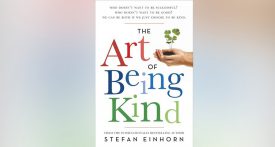351
Vote
The goal of spirituality is the perfection of the soul. But what does perfecting the soul mean? From an ethical point of view, it is a matter of transforming the soul’s substance, thereby developing all human virtues within oneself. Such a transformation is not automatic. It requires that one first develops an accurate idea of what virtues are, as well as of the means for making them shine forth in oneself.
Read more
635
Vote
Ostad Elahi’s philosophy is, as we know, grounded in the personal efforts made to gain greater self-knowledge not with the perspective of self development but of spiritual development. However, as soon as you set out to concretely experiment this philosophy and to undertake the work of spiritual perfection of the self, you are bound to encounter several forms of resistance.
For my part, ever since I have started making efforts to keep some of my character weaknesses in check and to develop my human qualities and my faith, through a variety of practices, I have observed the same pattern: at the beginning of each new practice I am highly motivated and focused on my objective and my efforts do not encounter any insurmountable obstacles. But then it doesn’t take long, maybe a couple of weeks, before my attention begins to dwindle and—unless I receive some help from the outside—I fall back into the same old negligence.
Read more
1090
Vote
The art of being kind—or how to demonstrate that kindness, contrary to what society often claims, is not a weakness but an ethical quality. This is no easy task but Stefan Einhorn, an oncologist at Karolinska Hospital in Stockholm, makes a very convincing point in his book The Art of Being Kind.
Stefan Einhorn begins by observing that kindness has a relatively bad reputation, and is often likened to weakness, simple-mindedness or just plain stupidity. Einhorn, however, defines kindness as a form of intelligence: “kindness as I understand it […] is not the fruit of stupidity but rather of common sense”. It is a quality that enables us to live according to an ethics of the heart by taking the well being of others into consideration. Kindness redefined then as “the art of being human among humans”, gives it new depth.
Read more
758
Vote
There is more to Benjamin Franklin (1706-1790) than the American icon we know today. A printer by trade, he became famous as a gifted inventor, a scientist, a civic activist, a statesman, a diplomat (he was the first American ambassador to France), and the author of several essays on matters ranging from politics to marriage or the game of chess. Now, besides having invented the lightning rod and counting among the Founding Fathers of the United States, Franklin led a personal quest into the spiritual roots of morality—an aspect of his life which is perhaps less commonly celebrated.
Read more
348
Vote
Virtue ethics can be defined as an ethical approach that emphasises the character of the agent. Whereas consequentialism emphasises the consequences of the action, and deontological ethics the rules that one may follow, virtue ethics define a virtuous act by a certain virtue in the agent, for example benevolence or generosity. Virtue ethics is not in conflict with deontological or consequentialist approaches, and can even be reconciled with them. The action driven by virtue ethics actually precedes the other two approaches: while deontological ethics or consequentialism addresses what is to be done in any given situation, virtue ethics focuses on the ways to develop certain virtues, or character patterns, in order to act well when needed. The main problem for virtue ethics, then, is 1) to define which virtues are desirable, and 2) how to develop them.
Read more

 News
News Podcast
Podcast








Recent Comments